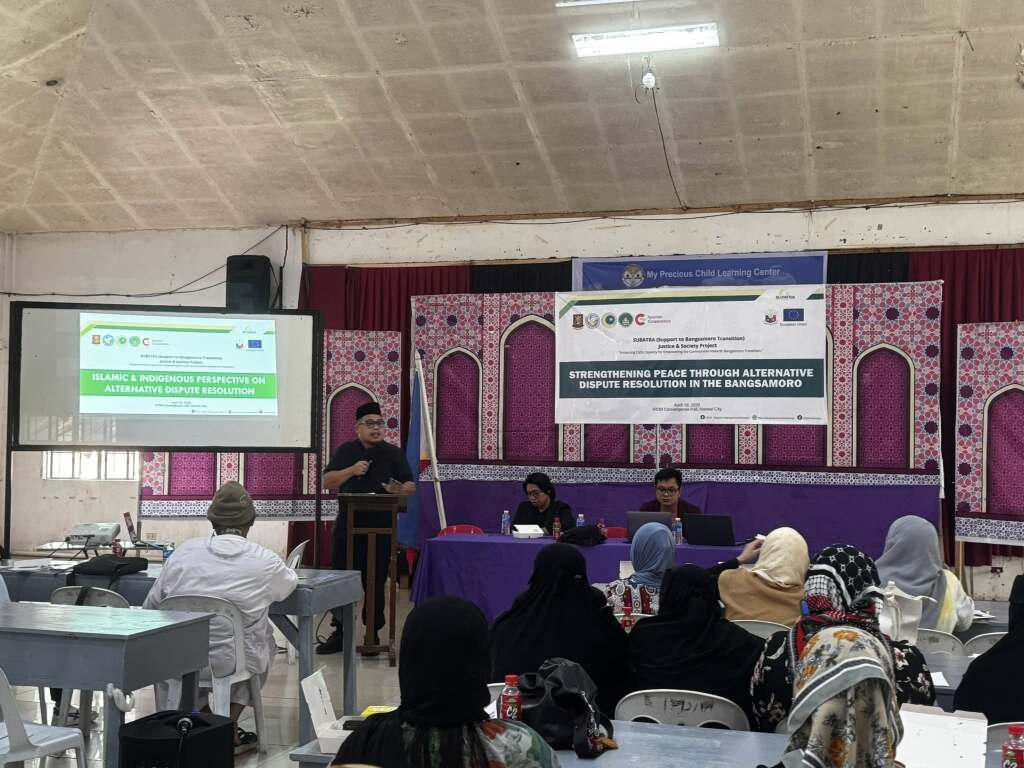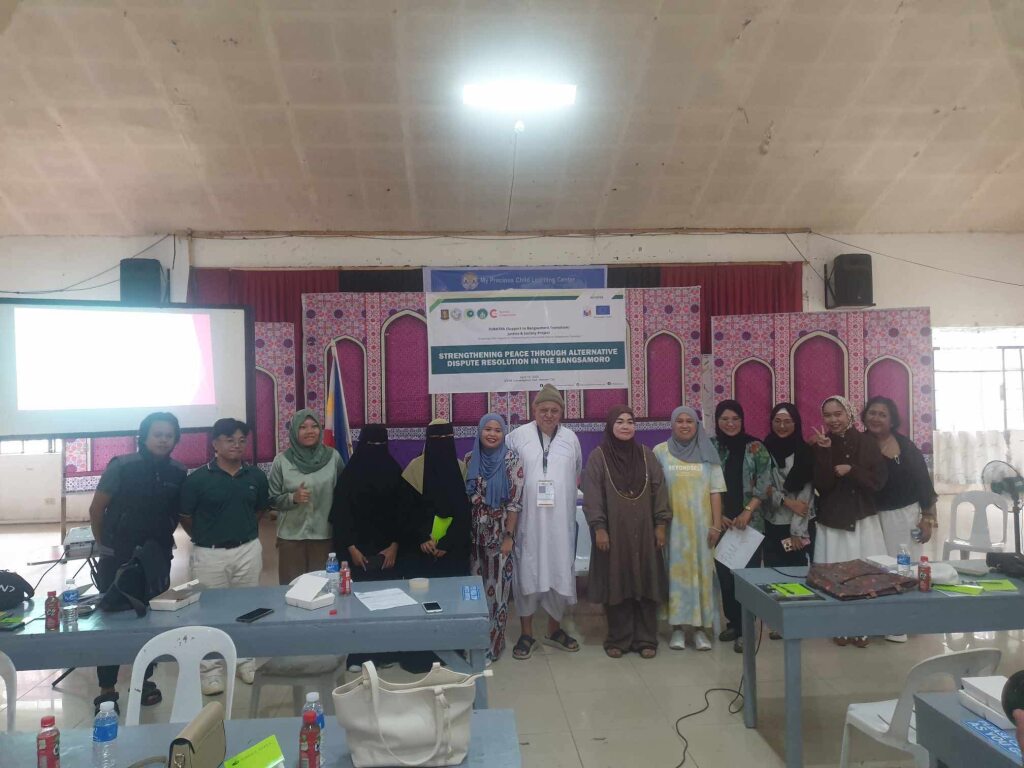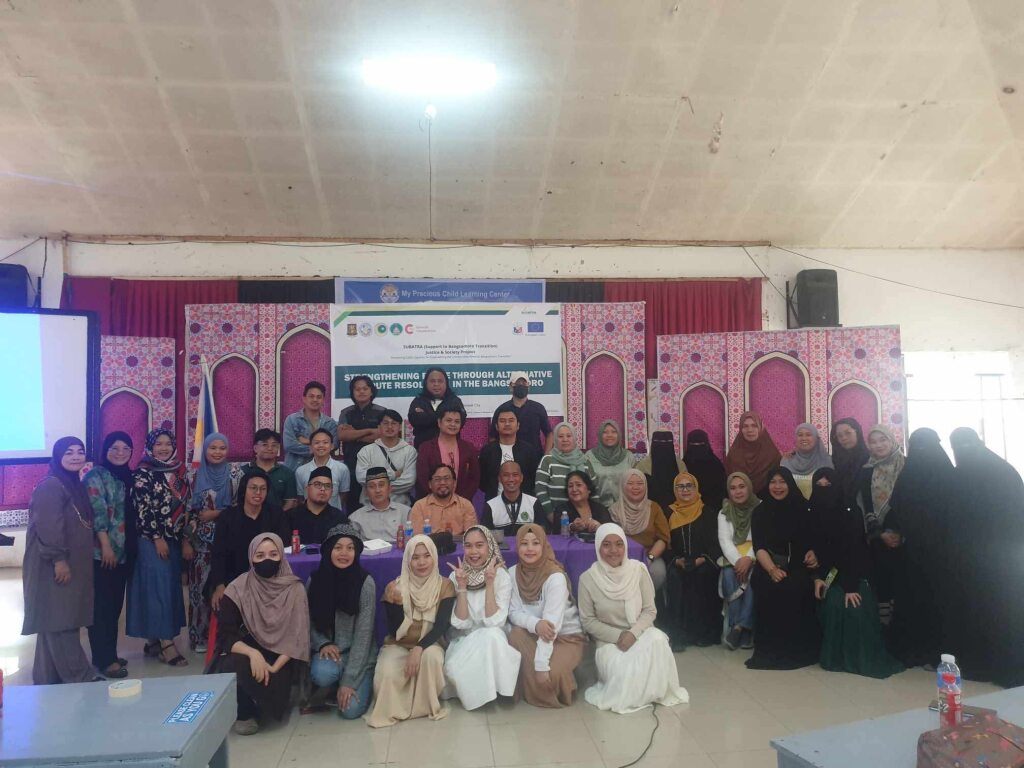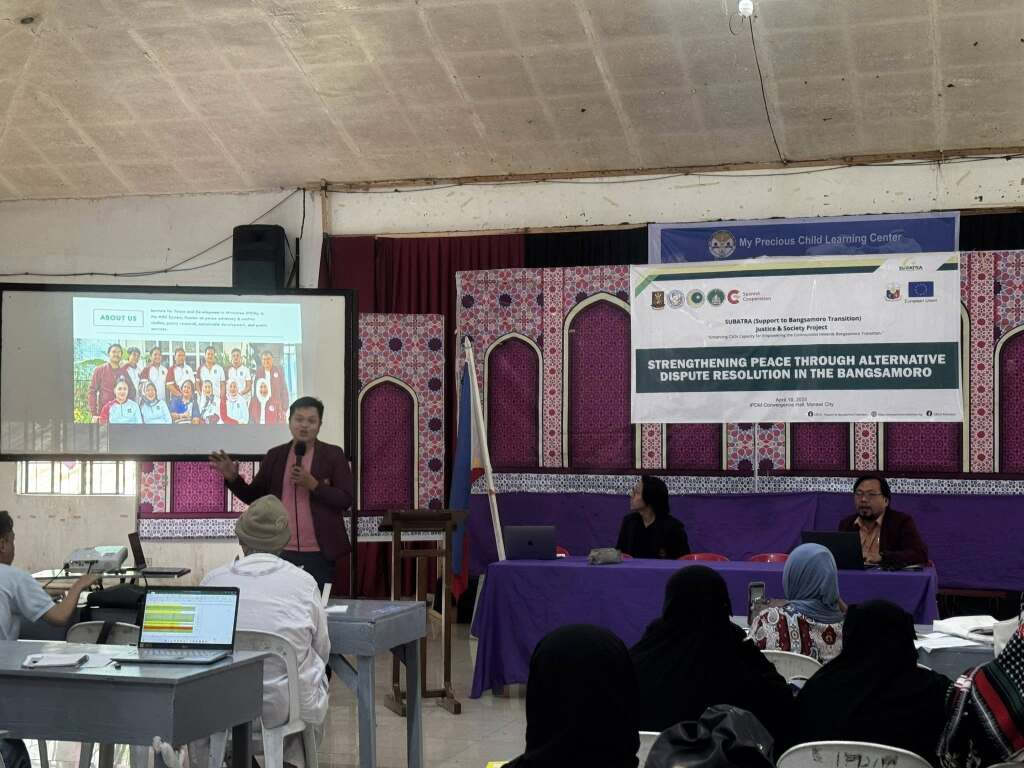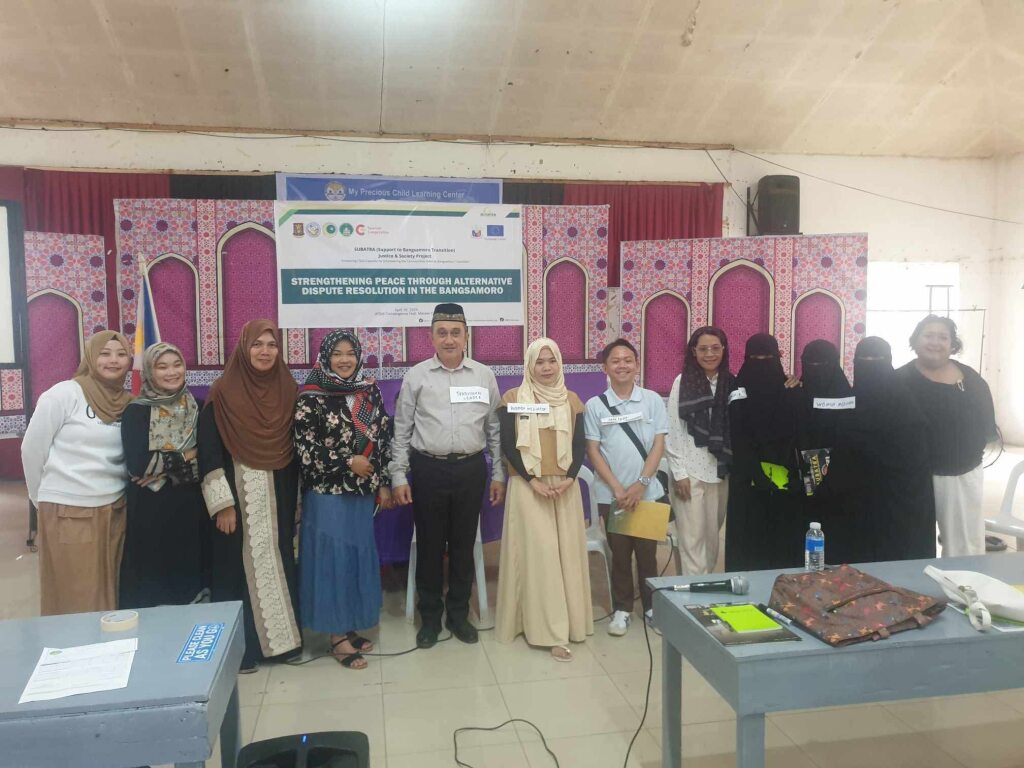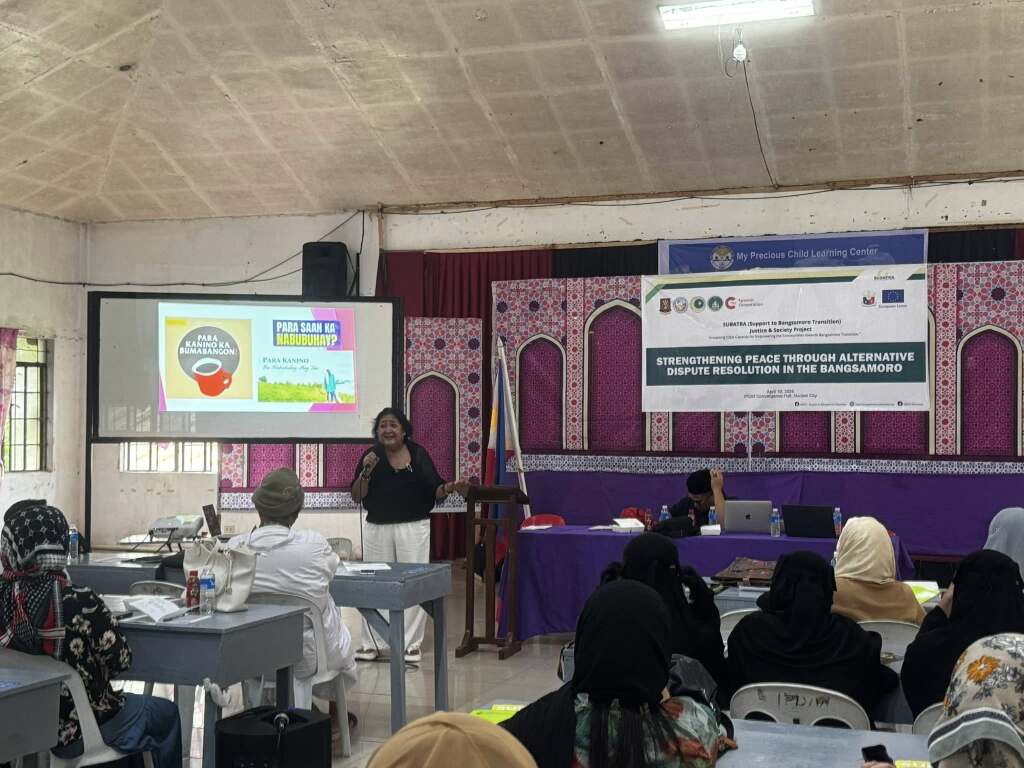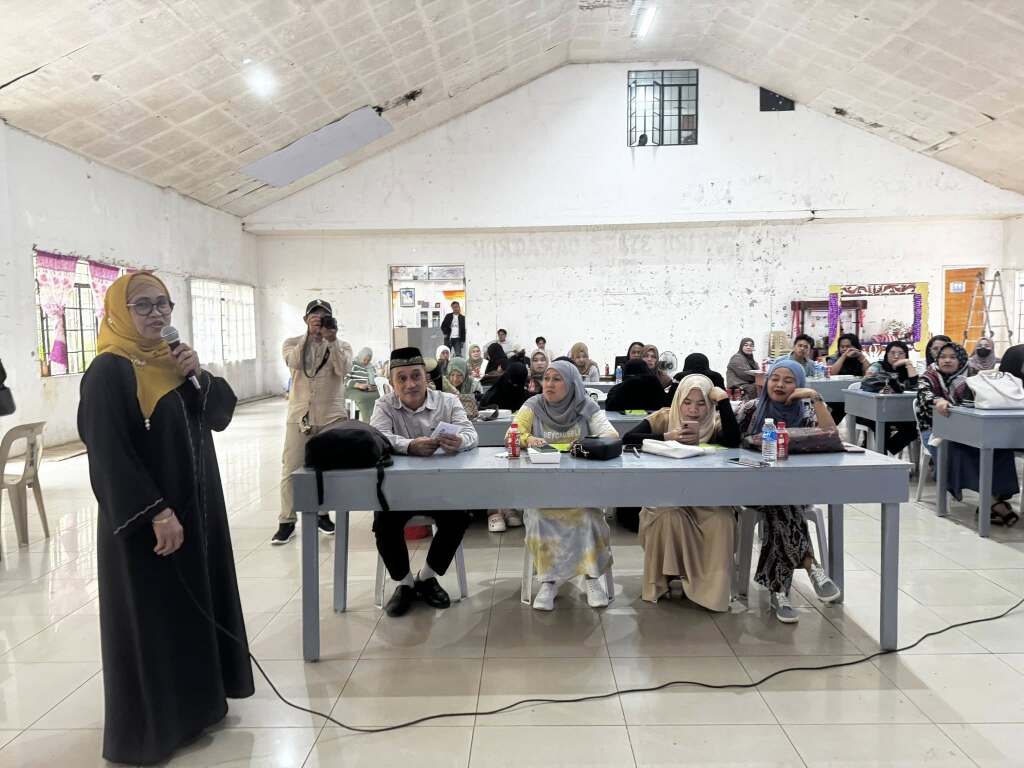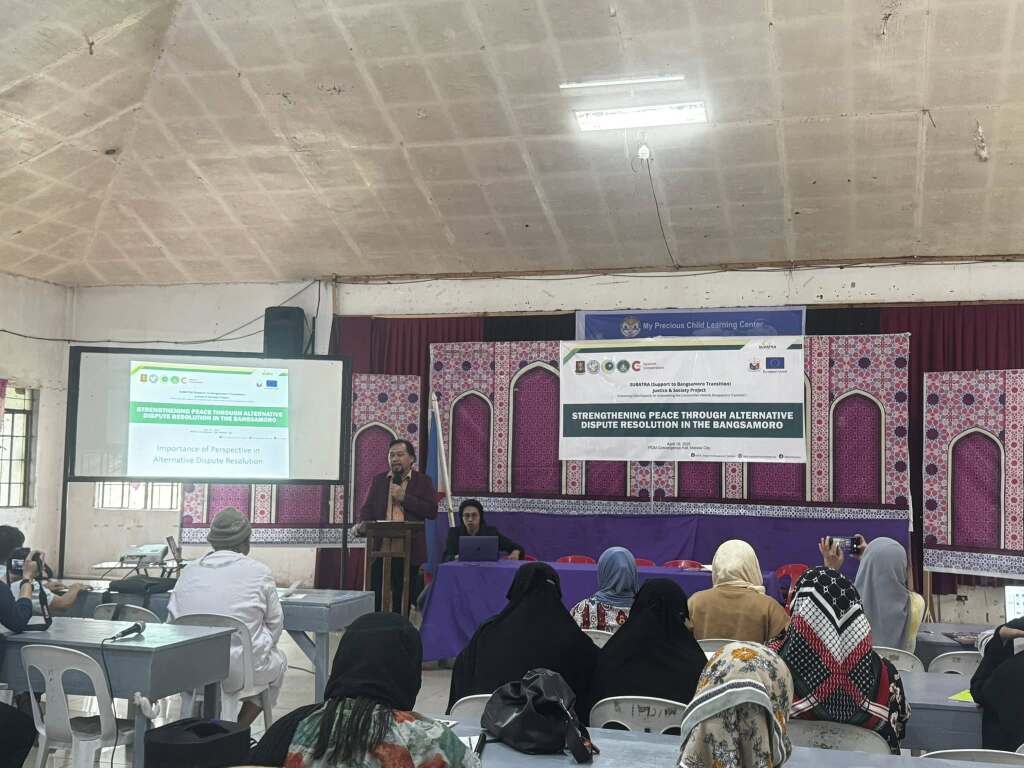Aliah P. Cali-Pascan, DPA, JD
MSU, Marawi City– In a concerted effort to bolster the foundations of peace within the Bangsamoro Autonomous Region in Muslim Mindanao (BARMM), the Institute for Peace and Development in Mindanao (IPDM) at Mindanao State University (MSU) and the Consortium of Bangsamoro Civil Society Inc. (CBCS) recently convened a significant program titled “Strengthening Peace Through ADR in the BARMM.” Held at the IPDM Convergence, the activity was organized under the auspices of the Support for Bangsamoro Transition Justice and Society Project, highlighting the critical role of localized Alternative Dispute Resolution (ADR) in achieving lasting peace and justice during this pivotal transition period.
The forum brought together a diverse group of stakeholders, including academics, ADR practitioners, civil society representatives from the extensive network of the CBCS, community leaders, and advocates, all united by the common goal of fostering a culture of peace rooted in local wisdom.
The program commenced with a warm welcome from IPDM Executive Director Acram Latiph, PhD. Dr. Latiph emphasized the collaborative spirit behind the initiative, highlighting the crucial partnership between IPDM and the CBCS in advancing peacebuilding efforts. He underscored the importance of empowering Bangsamoro communities with culturally relevant and effective mechanisms for resolving conflicts.
The keynote address, delivered by the insightful Robert Adapan, eloquently articulated the pathway “Towards a Culture of Peace through ADR.” Adapan stressed the limitations of purely adversarial approaches and championed the transformative potential of ADR in fostering dialogue, understanding, and ultimately, a more harmonious society within the unique context of the Bangsamoro.
Dr. Acram Latiph further contributed to the discourse by shedding light on the vital role of “Perspectives” in conflict resolution. His presentation underscored how individual experiences and cultural backgrounds shape the understanding of disputes, emphasizing the need for empathy and a willingness to see issues from multiple viewpoints – a cornerstone of effective ADR.
Providing a comprehensive overview of the existing landscape, Prof. Almahdi Alonto delivered an insightful presentation on “ADR in the BARMM.” He mapped the current initiatives and opportunities for strengthening ADR mechanisms across the region, emphasizing its potential to complement the formal justice system and enhance access to justice for Bangsamoro communities.
A key highlight of the program was the session dedicated to the deeply rooted traditions of “Islamic and Indigenous ADR.” Expertly presented by Dr. Tirmizy Abdullah, this segment illuminated the rich principles and practices inherent in both Islamic jurisprudence and the customary laws of the Bangsamoro’s diverse indigenous populations. Dr. Abdullah skillfully highlighted the shared emphasis on reconciliation, mediation, and community involvement within these time-honored systems.
To bridge theory and practice, Prof. Corazon Mangelen facilitated an engaging role-playing simulation set within a familiar barangay setting. This interactive exercise allowed participants to actively engage with localized ADR techniques, demonstrating their practical application in resolving everyday disputes at the grassroots level.
The program culminated in a dynamic open forum, expertly moderated by Dr. Aliah P. Cali-Pascan. During this interactive session, Jamel Panda, a journalist by profession, commended the partnership between IPDM and CBCS, recognizing its vital role in advancing peace. Baelabi Baeshora Sabdullah, representing the Federation of Women Royalty, proposed a similar project specifically aimed at capacitating women traditional leaders in ADR. Adding his valuable perspective, a participant who is also a Sultan shared his best practices in local conflict resolution, emphasizing the importance of documenting these processes regularly to ensure their preservation and wider application. This lively exchange provided a valuable platform for participants to directly interact with the speakers, pose questions, share their own experiences, and contribute to the collective understanding of how to effectively localize and implement ADR across the BARMM. The active engagement underscored the shared commitment of both civil society and academic institutions in this endeavor.
The entire event was skillfully hosted by Prof. Mojahid Baraki, ensuring a smooth and engaging flow of discussions throughout the day.
The collaborative effort between IPDM and the Consortium of Bangsamoro Civil Society Inc., under the Support for Bangsamoro Transition Justice and Society Project, signifies a significant step towards strengthening the peacebuilding architecture in the BARMM.
By emphasizing the integration of local traditions with contemporary ADR practices, this forum in Marawi underscored the commitment to building a just and peaceful Bangsamoro that is deeply rooted in its own rich cultural heritage. The insights and partnerships fostered during this activity will undoubtedly contribute to the ongoing journey of peace and reconciliation in the region.
The event was also documented by Prof. Khayronesah P. Abbas.
